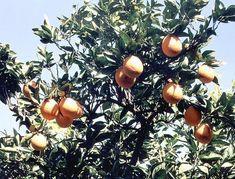
This season shows all the signs of being a mixed year for South African citrus, while the Spanish look back on good volumes, but poor prices and other Mediterranean countries analyse their campaigns.
Drought in northern regions of South Africa, notably around Mpumalanga, is expected to cut overall production by around four per cent to 1.7 million tonnes, according to the latest independent assessment from the US department of agriculture. Quality and fruit size are both looking extremely good, and the USDA forecasts a rise in exports to 1.08mt, boosted by increased trade with Japan, Russia, India and China.
Meanwhile, as the Spanish season draws to a close, trade body Intercitrus has announced a record in volumes marketed of 4.7 million tonnes: up six per cent on last season. Some 3.5m has been exported with France and Germany accounting for the lion's share of the uptake and the Spanish domestic market alone absorbing 1.3mt.
But prices have not accompanied the good volumes with orange price levels only reasonable and clementine prices "very poor because of poor weather conditions which shortened the cropping period," according to Intercitrus president Nicolás Belmonte.
While Intercitrus's advertising campaigns to increase consumption have been producing good results in some EU member states. The results in the UK "have not been spectacular," admitted Belmonte in the Spanish press.
Conversely, Israeli output is projected to be in line with the 2002-03 crop year at around 495,000t of which grapefruit will account for a 50 per cent share, oranges 28 per cent and easy-peelers 16 per cent. Of this, 140,000t is directed at the export market with the UK a leading player. Some 220,000t is destined for processing and 135,000t for to be consumed by the domestic market.
Meanwhile, Italian production in 2003-04 is forecast to fall four per cent to 2.67mt, down from 2.78mt in 2002-03. Oranges make up 63 per cent of the figure and easy peelers 17 per cent. The smaller harvest reflects a reduction in planted area - a situation compounded by water shortages, especially in the Calabria region.
Greek exports are feeling the pinch, in a scenario exacerbated by a smaller harvest in 2003-04 following severe frosts in southern and western regions. Estimates are that some 50 per cent of crops have been lost making this season one of the worst for 50 years.



